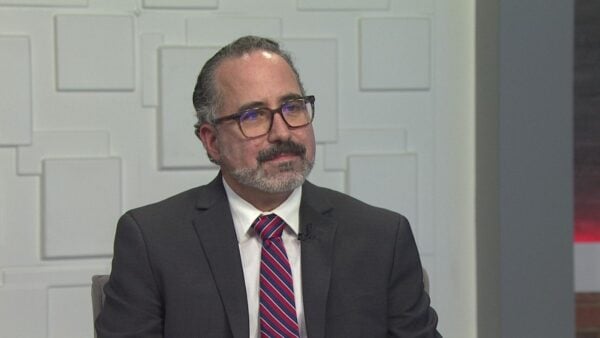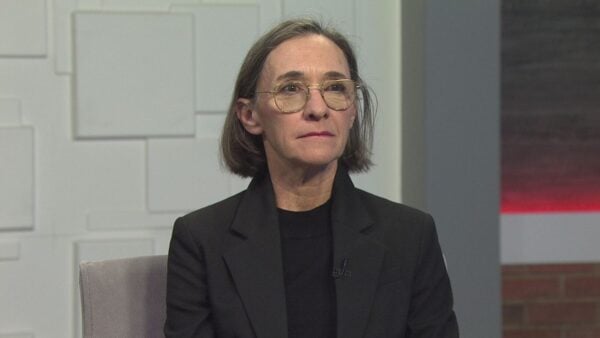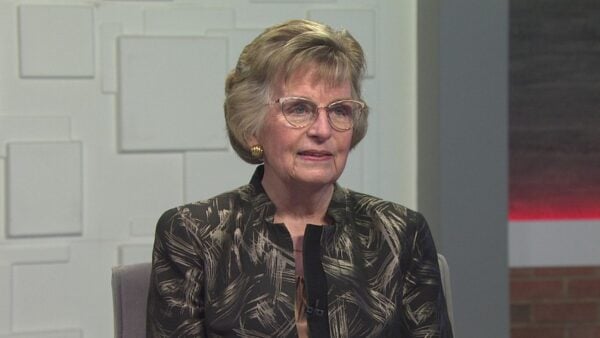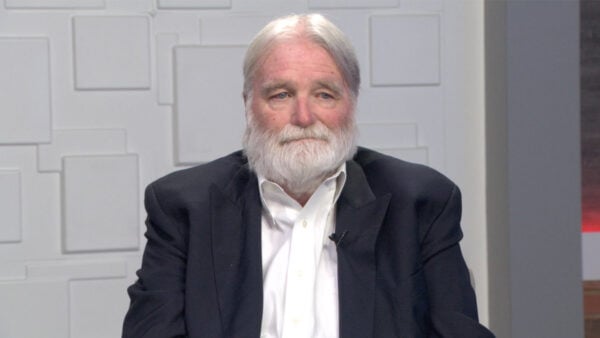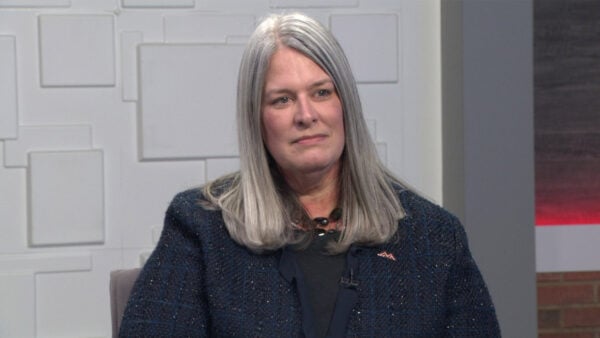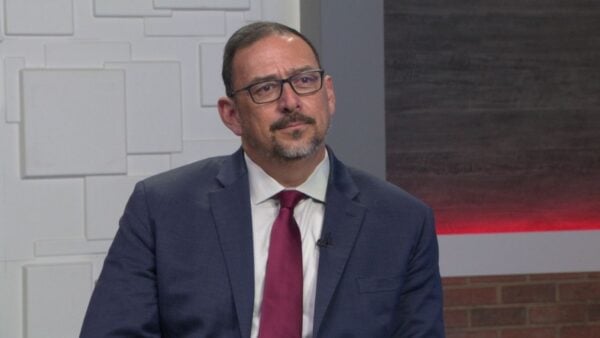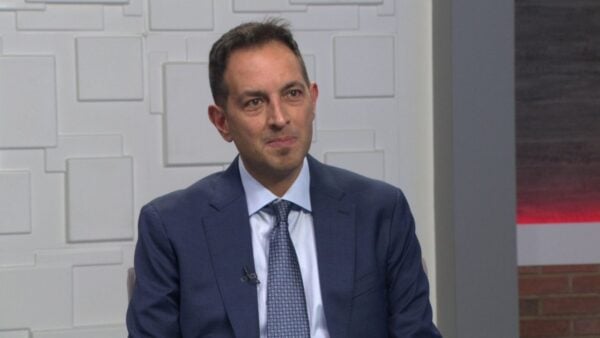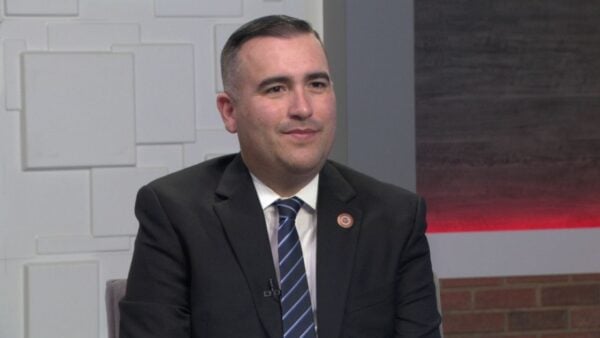Reporting by the Arizona Republic says Arizona’s congressional delegation is a microcosm of the problems with congress. It includes Tea Party Republicans, establishment members and moderate congressmen and women of both parties. Rebekah Sanders, who worked on the articles for a year, will talk about her reporting.
Ted Simons: The Arizona Republic spent the last year looking at hour Arizona's congressional delegation mirrors Congress as a whole. As evident in the state's Tea Party Republicans, establishment members and moderates in swing districts. The series was put together by reporter Rebekah Sanders who joins us now and good to see you again. This was quite the effort here, and a house divided. What was the focus?
Rebekah Sanders: Well, we knew that 2013 was going to be an important year because it was a lot of members in our, in our state delegation to the House of Representatives that were new, or, or hadn't been elected for very long, and also, our delegation grew from eight numbers to nine because of our population growth. So, we just wanted to really keep track of who are these, these people representing Arizona, where do they fall along the ideological spectrum and how do they respond to the battles in Congress that we know go on all the time?
Ted Simons: Let's talk about how they do fall along that spectrum, and how they did respond to the battles.
Rebekah Sanders: Interestingly we have got a very wide breadth of political positions. We have folks on the far left, and folks in the middle, three moderate members, and folks on the far right, as well. So, it's interesting Arizona is not just purely at the red state that some folks think that we are but we have got people on all sides.
Ted Simons: Did you find that, that, and we hear a lot out of Washington that compromise has become a dirty word, if you will, and is that with our delegation, as well?
Rebekah Sanders: Well, what we did see is, is that there is a, a big struggle in Congress to have people get beyond fighting for, for their principles and what they want, and deciding to give a little and take a little. What's interesting is the middle ground in Congress has really shrunk dramatically. I mean, obviously, there is always, there has always been differences of opinion and political fights in Washington. But, it's even more pronounced now. According to some voting records, you could see the moderate number of members in Congress shrinking from 344, three decades ago, to 13.
Ted Simons: I think that we have a chart or something along those lines, that shows how the middle ground is, is almost -- that's the laws passed by Congress. Go to the other chart, if you can. It shows the middle ground, there you go.
Rebekah Sanders: It's shrinking dramatically.
Ted Simons: My goodness.
Rebekah Sanders: You wonder why they cannot get along.
Ted Simons: Is this, is this mostly, and we hear about this, is this mostly because of the primary system?
Rebekah Sanders: That's part of it. The primary elections are of more importance, so they are worried about getting challenges from people of their own party and having to be farther to the left or the right than their opponents. Redistricting, has played a part in that. Voters also just, just are moving into neighborhoods that are more like minded. So, we are in some part to blame.
Ted Simons: I noticed in the stories there was one section you talk about the difference between being a steward and a delegate.
Rebekah Sanders: These are two philosophies of how members of Congress see themselves at representatives. Are you elected to make the right decision for the country as a whole? And that might mean giving a little bit on your principles. Or are you there to really represent to a t what your constituents believe and want you to stand for. And you could say that the our more conservative people, Matt salmon, and even to an extent, Trent Frank, are more in that model of, of I'm, I'm my district representative, and so I have to be as pure ideologically as I can.
Ted Simons: As far as the Tea Party, how influential -- and are these folks, I mean, are they banner-carrying Tea Party members?
Rebekah Sanders: Well, to an extent. I think definitely a lot of the principles of shrinking Government, you know, cutting spending. Those are really important to the members, also to their constituents. So a lot of what the battles in Washington are about, is, is how much are we going to spend, how much debt are we going to carry and, and they are very, there are very different views on that.
Ted Simons: And I noticed Senator Barbara Kirkpatrick, considered moderates, but are they opportunists because they have got to run that path in those districts.
Rebekah Sanders: They are all Democrats in districts that are evenly divided between Republican and Democratic voters and independents, as well. And so they can't view the party line 100 percent of the time, even though sometimes they may want to, although, you know, they say they are trying to chart the middle path. It's good for their re-election to vote with Republicans sometimes, they say it's also about making the reasonable choices. But sometimes it can get confusing. For instance, on affordable health care votes, when, when these Democrats support the law as a whole, and say but we would like to make some of these GOP-backed changes.
Ted Simons: Yeah, and that's interesting because, and if you don't like something, you will vote one way or the other, and you cannot figure out if they are for it or against it. As far as the, the senior members, Franks, you would think the senior members, and I think you wrote about this. There is a legacy here, they know how Congress works, yet those, they are as partisan as you can get.
Rebekah Sanders: That's right. So, there is this question, if you are in Congress a long time, do you become more entrenched and more polarized, or do you see that you have to grease the wheels to get things done, and you have to, to negotiate. It really depends more, I think, on the temperament of that member. Ed Pastor, our Dean of the Delegation, been in Congress more than two decades, and he has chartered more of the, of the middle road in terms of he voted for the bipartisan budget deal this December, which he did not like some of the cuts in it. But he felt like, like, you know, we need a deal just to have some stability here, and he went for it. The others opposed it.
Ted Simons: Indeed, before we let you go, anything surprise you in doing the research for this?
Rebekah Sanders: Yeah, you know, I just think that it was great to see the members up close and personal. You will see in the, in the stories that you can read, it's at azcongress.azcentral.com. All the meetings and town halls I went to with the members. And they have got really, really interesting personalities that come out.
Ted Simons: So, and as far as readership and folks that go online and take a look at this, what do we take from this?
Rebekah Sanders: Well, I think that readers have been responding in terms of feeling appreciative they know the delegation well now, and they understand that Arizona is a really interesting microcosm of our nation's politics as a whole right now. And I think that helps people understand why aren't they getting along? Well, because of the different opinions, and the different motivations politically that the members have.
Ted Simons: All right. Very good. Thank you very much for joining us. We appreciate it.
Rebekah Sanders:Congressional Report, Arizona Republic;









